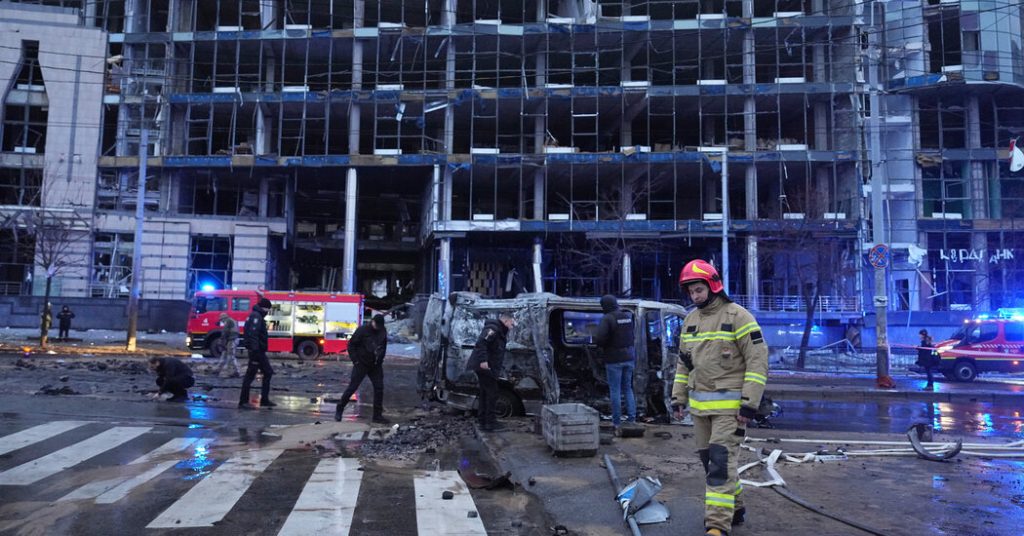It was an early Saturday morning in Kyiv when the stillness of the city was shattered by loud explosions. The unsettling sounds came shortly after an air-raid alert had ended, as the clock struck 5:50 a.m. Moments later, the all-too-familiar wail of air-raid sirens returned, warning of imminent danger. The city’s residents, often resilient in the face of ongoing threats, hurriedly sought shelter as the reality of another attack unfolded.
Kyiv’s mayor, Vitali Klitschko, took to Telegram to inform residents about the city’s air-defense systems in action. His message was a double-edged sword: on one hand, a reassurance that efforts were underway to protect them from the missile threats; on the other, an urgent plea for people to remain in shelters until further notice. Shortly thereafter, Klitschko provided an update, revealing that emergency services were already responding to a fire at the scene of the attack. Tragically, reports indicated that four lives had been lost as a result of the assault.
This morning’s attack in Kyiv is another stark reminder of the ongoing and escalating tensions in the war between Ukraine and Russia, now nearing its three-year mark. The conflict, initially launched by Russia’s full-scale invasion in February 2022, has seen both sides intensifying their offensives in recent weeks. The violence has become a grim constant in the lives of those caught in its path.
While the story is still developing, the latest events in Kyiv underscore the harsh reality of this enduring war. For the people of Ukraine, the sound of explosions and the eerie wail of air-raid sirens have become an all-too-frequent backdrop to their daily lives, a somber reminder of the fragile and volatile state of the region.


